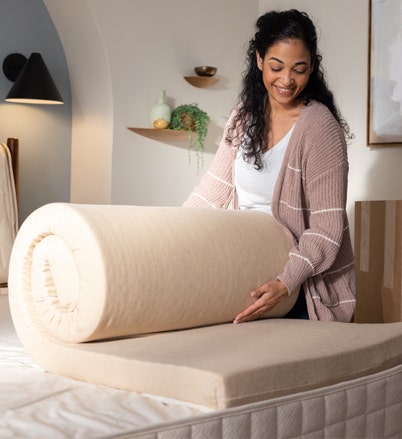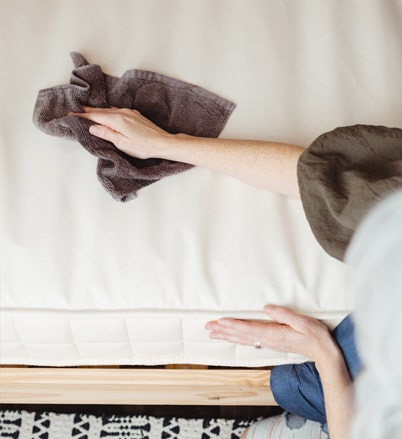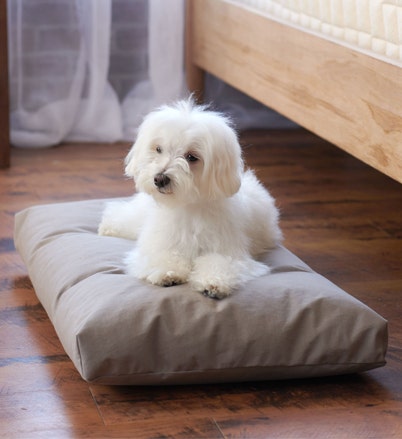Having the biggest bed possible might be tempting, but is it the right choice for you? Whether you're a solo sleeper or a family with little ones (or pets!) who like to snuggle in, the right bed size can make all the difference in your sleep quality. A mattress that's too small can leave you feeling cramped, while an oversized option might not fit your space or budget.
From Twin bed dimensions ideal for kids and guest rooms to the spacious King mattress size or the extra-long California King bed size, understanding bed size dimensions is key to finding the perfect fit. Need help choosing? Don't worry – we're pros. In this guide, we’ll break down mattress sizes from King size bed dimensions to cribs and help you choose the best mattress for your lifestyle, space and sleep needs.
Factors to Consider When Choosing a Bed Size
First thing's first – understanding bed sizes. These are the dimensions of the standard mattress sizes available in the US market:
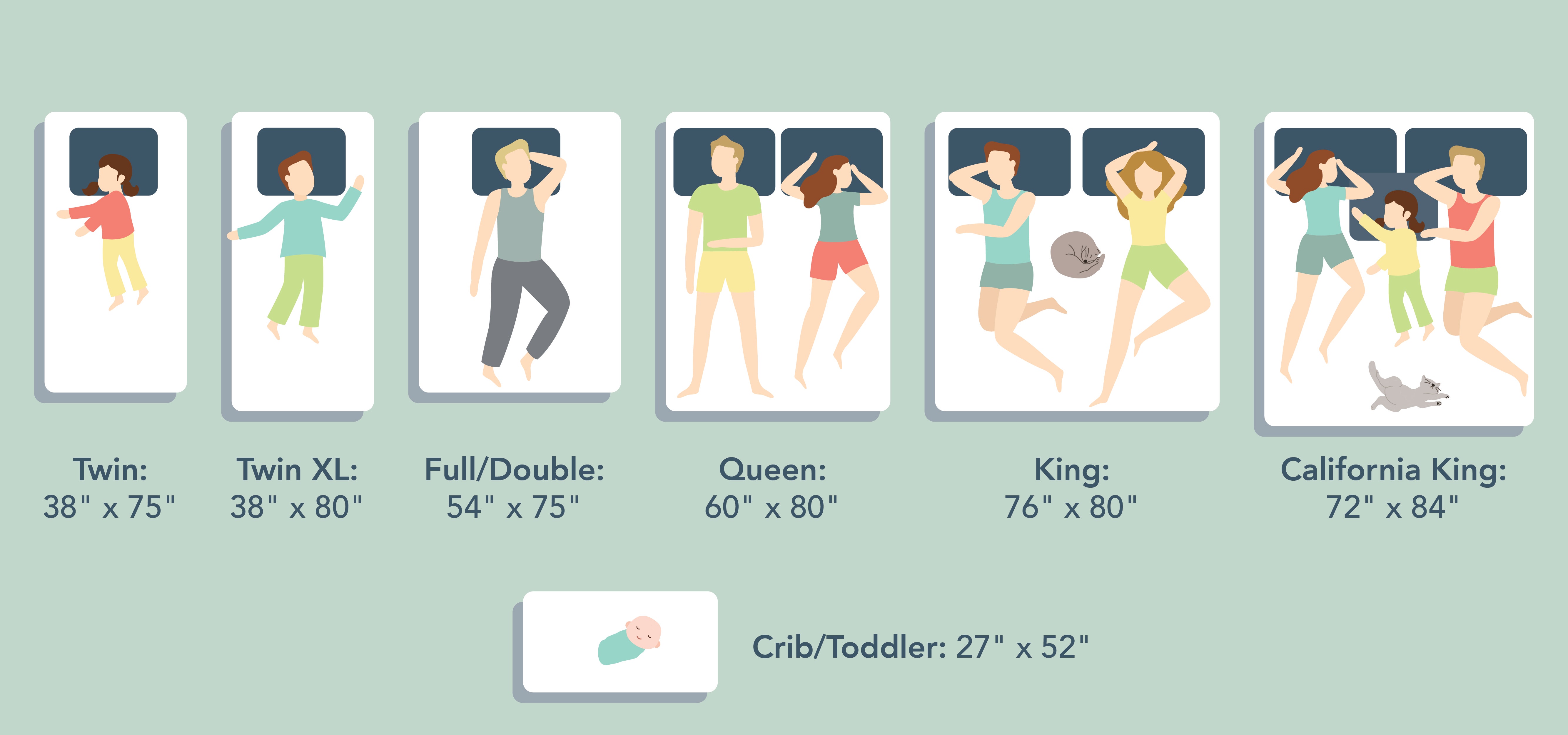

Your bedroom dimensions should be your first consideration when selecting a mattress size. When planning your layout, aim for 24-36 inches of walking space around the bed. That way, you can move comfortably and easily make the bed and change linens.
Of course, choosing the best bed size isn’t just about picking the biggest mattress that fits in your room. Your sleep habits, bedroom layout and even future needs all play a role in determining the best fit. Before deciding, consider the below key factors to ensure your new bed provides both comfort and practicality.
Sleeping Arrangements
Who will be using the bed? This simple question is key to finding your perfect mattress size!
Solo sleepers can be comfortable on Twin, Twin XL or Full mattresses. It depends on whether you like to spread out or prefer a cozier sleeping space.
Couples will want at least a Queen-size bed for comfortable sleeping. Each of you gets about 30 inches of personal space, which is just enough room to change positions without disturbing your partner's slumber. (You also might want to consider a split king if you have different sleep preferences and want to sleep better together.)
Families with little ones or pets who occasionally join the slumber party might prefer a king or California King. There's nothing like knowing everyone has enough room to sleep comfortably through the night!
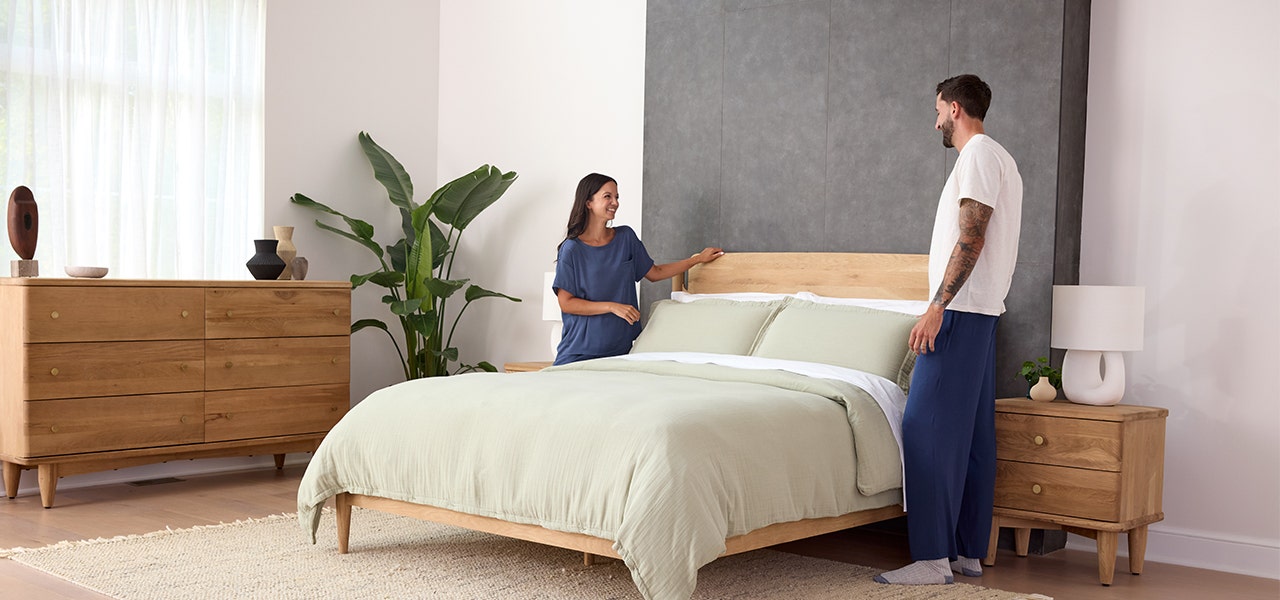

Height and Sleeping Preferences
Your height and preferred sleeping position impact your mattress size choice.
Your mattress should extend at least 4 inches beyond your height for optimal comfort. For taller folks over 6 foot 2 inches, a Queen, King or California King provides that crucial extra length.
Your favorite sleep position affects your space needs, too. Side sleepers need room to bend their knees, while back sleepers often spread their arms out to the sides. Meanwhile, tossers and turners will benefit greatly from the additional space of larger mattresses.
Future Plans and Portability
Consider your mattress an investment in good sleep for the next seven to 10 years. That means thinking about where life might take you! Growing families might benefit from investing in a larger mattress now. Having extra space for those morning cuddles can make family life smoother. (And the same goes for growing kids and teens who will need extra space before you know it!)
Moving often? Larger mattresses can be challenging to navigate through doorways and up staircases. Portability matters when you're not settled in a forever home. (Our modular EOS Organic Mattresses make moving a breeze, FYI. Well, not the whole moving process – but the mattress moving process!)
Naturepedic's EOS customizable mattresses also have interchangeable layers that let you adjust firmness as your preferences change over time. This adaptability means your mattress can evolve with you through different life stages, making it a more sustainable long-term investment for your sleep health.
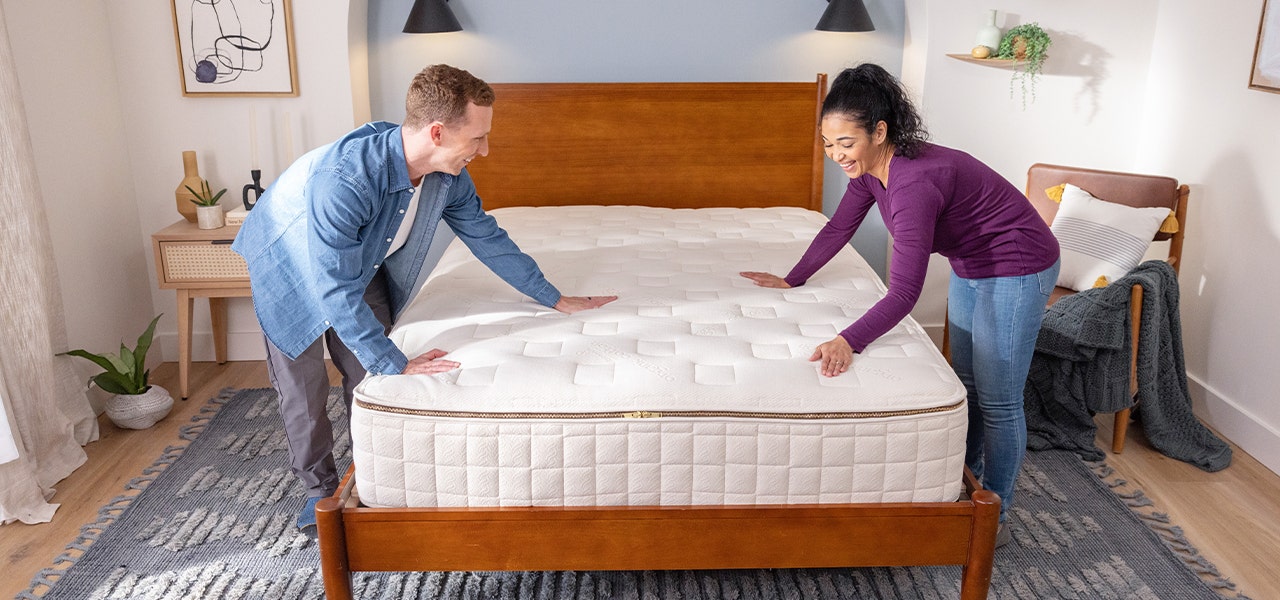

Budget and Accessories
Larger mattresses require more materials and naturally come with higher price tags. A King-size mattress typically costs 20–30% more than a Queen, and specialty sizes like a California King bed size can command an even higher premium due to their unique dimensions and lower availability. (Not at Naturepedic, though. Wink, wink.)
Beyond the mattress itself, consider the long-term costs. Larger beds often require pricier bedding, including fitted sheets, duvets and mattress protectors tailored to King mattress size or California King bed size dimensions.
Don’t forget about bed accessories like bed frames, box springs and headboards, which need to match your chosen bed size dimensions. A Twin bed frame will be far more affordable than a sturdy King-size bed frame, and oversized furniture pieces may also limit your layout options. Before committing to a size, factor in both the initial mattress cost and the additional expenses of outfitting your bed.
Choosing the Best Mattress for Your Space and Lifestyle
We’ve put together this chart to help you pick the right bed mattress size based on your space, sleep habits and who you share your bed with.
By considering bed size dimensions alongside your sleep needs, you can choose the perfect mattress for both comfort and functionality.
Finding Your Perfect Fit
Now do you see why "go big or go home" might not be the best philosophy when mattress shopping? By taking all the details we've covered into account – not just size, but also support needs, bedding considerations and room functionality – you can ensure that your new mattress is the perfect fit in every way.
Now that you know your options, all that’s left to do is find your perfect match. Sweet dreams!
 BABY
BABY  KIDS
KIDS  ADULT
ADULT  LEARN
LEARN  STORES
STORES 
